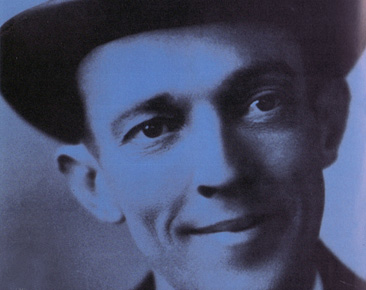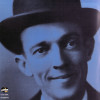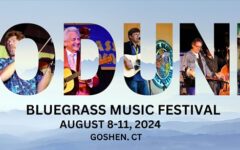
 As of this past Tuesday, May 26th, it has been 82 years since the passing of Jimmie Rodgers. A titan of American music, Jimmie Rodgers is considered an influence in country, bluegrass, folk, jazz, blues, rock, pop, Americana, and more.
As of this past Tuesday, May 26th, it has been 82 years since the passing of Jimmie Rodgers. A titan of American music, Jimmie Rodgers is considered an influence in country, bluegrass, folk, jazz, blues, rock, pop, Americana, and more.
In six short years, “The Father of Country Music” left behind a musical legacy which is still relevant in today’s popular culture. As we remember Jimmie’s passing, I will be featuring some Rodgers Remembrances and discussing Jimmie’s impact on bluegrass music.
I was a stranger passing through your town
I was a stranger passing through your town
When I asked you a favor, good gal, you turned me down
[Yodel]
You may see me talking, walking down the railroad track
You may see me talking, walking down the railroad track
But, good gal, you done me wrong. I ain’t never comin’ back
[It’s the truth, honey]
[Yodel]
Honey, I’m so lonesome, I don’t know what to do
I’m so lonesome, I don’t know what to do
The way you treat me, Mama, I hope you’re lonesome too
[Lord, lord, lord]
[Yodel]
I rode the Southern. I rode the L&N.
Lord, I rode the Southern. I rode the L&N.
And if the police don’t get me, I’m gonna ride dem again.
[Yodel]
[Tell em bout me.]
Look a’here, Mr. Brakeman, don’t put me off your train.
Please, Mr. Brakeman, don’t put me off of your train.Cause the weather’s cold, and it looks like it’s going to rain.
[Yodel]
I like Mississippi, a fool about Tennessee. [Hey, hey!]
I like Mississippi, a fool about Tennessee.
But these Texas women bout got the best of me.
[Yodel]
The seventh in Jimmie Rodgers’ series of “blue yodels,” Jimmie’s recording of Anniversary Blue Yodel is simple and straightforward. Accompanying himself on guitar, Jimmie delivers a very stirring, bluesy rendition of the song, which really showcases his voice. Jimmie is often described as one of the first pop artists to sing with “heart and soul,” and it is tracks like this which bolster that argument. Like few artists of his day (or of any day), Jimmie sang with a believability factor which reaches right inside of your gut and says “Pay attention!” While their voices may not sound similar in tone, Jimmie’s style of singing, particularly on this cut, reminds me of a Dudley Connell or a Chris Stapleton, in my opinion, two of the world’s most believable modern singers. They sing with the same raw, honesty that Jimmie had over eighty years ago. The ability to convey emotion, whether joyful or sorrowful, is a true mark of a great vocalist, and Jimmie had it. I challenge you to listen to Jimmie’s original version of Anniversary Blue Yodel and not feel it yourself.
The Father of Country Music is the title most commonly associated with Jimmie Rodgers, and his role in shaping the trends in early country music (along with The Carter Family) cannot be overstated. His impact as The Father of Country Music was also very influential on The Father of Bluegrass Music as well.
Most know that Bill Monroe’s two primary influences when learning music were his Uncle Pen, who was a popular fiddler in the area, and Arnold Schulz, an almost mythical black blues guitarist, whose reputation is legendary due to his influence on the music Bill Monroe and Merle Travis. Monroe’s seamless combination of mountain music with the blues, helped form the bedrock on which bluegrass was built. According to music historian, Barry Mazor, “Bill had come to prominence with a deep understanding of black blues and was prepared to reinject blues into southeastern country music, updated bluegrass style, in a serious, deliberate way.” Mazor also points out the avenue through which to accomplish such a task: “Jimmie Rodgers’ blue yodels provided the perfect way.”
The match was perfect. Rodgers’ songs were a natural combination of the blues and country music, as he was a pioneer in both genres. Monroe’s hybrid approach to the songs, matched with his own skill as a vocalist and instrumentalist, allowed him to re-imagine these classics as powerhouse showpieces, rather than as straight blues songs. The familiarity of the original versions to the audiences of the forties, further emphasized the originality of Monroe’s ideas with his interpretations. Monroe would transform songs such as Muleskinner Blues (Blue Yodel No. 8) and Brakeman’s Blues into bluegrass standards, while also recording many other Rodgers songs, such as When The Cactus Is In Bloom, My Carolina Sunshine Girl, and Those Gambler’s Blues.
One of Monroe’s earliest re-workings of a Rodgers tune was Anniversary Blue Yodel (Blue Yodel No. 7). This version was recorded in 1941, and does not feature a banjo. The Bluegrass Boys at this time featured Art Wooten on fiddle, Pete Pyle on guitar, and Bill Westbrook on bass. A young Monroe is absolutely singing his heart out on this cut. Monroe is hungry to create a sound of his own, and that “unbridled enthusiasm” (as Cosmo Kramer would put it) is evident in this old recording. His implementation of Rodgers’ yodel is as high as a kite, and Monroe’s powerful voice make this one of the best pre-Scruggs recordings from The Bluegrass Boys.
Other bluegrass versions of Anniversary Blue Yodel include Doc Watson and King Wilkie (whatever happened to them?).
If you enjoyed this Rodgers Remembrance, be sure to check some of my others from throughout the past few years. (The easiest way is to search “Jimmie Rodgers” in the hand-dandy Bluegrass Today search bar in the top right corner of the page.)
I will also be delivering a two-hour Jimmie Rodgers Tribute Special tomorrow (5/30) on Classic Country Radio, during my Bending The Strings radio program. Tune in from 3-5PM EST at myclassiccountry.com or by downloading the “Classic Country Radio” app for smartphones and tablets.







